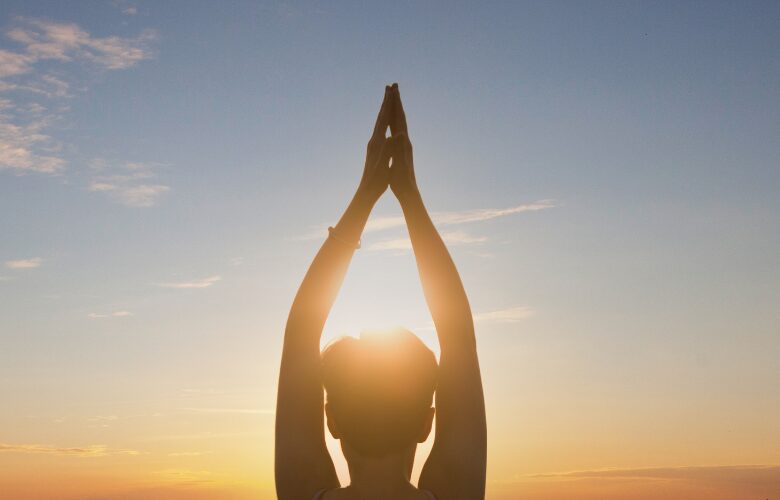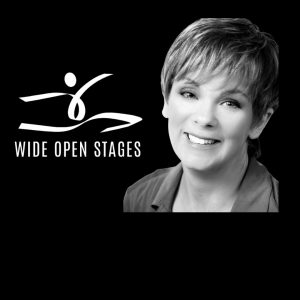
Hey there. You haven’t heard from me in a while because I’ve stepped away and given myself permission to take a pause. I didn’t need or want to take a break from my podcast or from serving my clients or finishing my manuscript. Those are the things that energize me and are part of what makes me hum. But when my brother called with the tragic news, I knew that my holding space skills were needed more than ever back home. So, without hesitation, about a week ago, I cleared my slate and got on the train the very next day.
In my work I call that level four. The core thought of level four is concern for others. It’s easy to overlook your own feelings in this mode, because your focus is on everyone else. When you step away from what you are inspired or driven to do, as I did for my podcast this week, you will hear the saboteur voices in your head get louder. They’ll promise and lie to you, telling you that if you step away for too long or don’t keep doing what you are doing the way you’ve been doing it, that you will fail or, worse yet, fade into the realm of has-beens and wannabes.
I am not immune to this kind of primitive thinking, especially when my momentum or my rhythm is interrupted. But it isn’t something to beware of aka avoid, but rather something to become aware of. Whereas beware connotes danger and means to stay away from or be cautious of, awareness invites us to open up and allows us the capacity to consider things differently. When we are aware, we have a more conscious new brain wave looking at things and we’re not blindsided by our primitive fear-driven voices then inevitably show up. When we are aware, we remain open and become more able to acknowledge and maybe even relax into the idea that this is perfectly normal behavior, that we are hardwired this way. But just because it’s normal doesn’t mean it’s required. Awareness is a superpower that allows us to remain responsive rather than reactive, especially in stressful situations.
But how do we become more aware, you might be wondering. Well, it’s a practice. The first step is to slow down. Not shut down, but slow down. Slow down enough that you have stopped projecting yourself into the future. You don’t know what’s going to happen if you stop. And how do you stop, you might ask. Well, you breathe and yes, technically we are always breathing but you stop to focus only on your breath, your life-giving breath. If things are highly charged, it may take more than one or two, but even one concentrated breath can send a signal to your brain that things aren’t as dire as it’s projecting, and you will begin to feel your lens of perspective widening. When you don’t stop to breathe, your body reacts instinctively to the perceived and imagined threat and reinforces the idea that you need to fight, run, freeze, freak out. You fill in the effort.
This more conscious view of things came in really handy when I stepped away from my work and watched my weekly stats declining. I felt the voices start to rumble and the red flags raise. But instead of closing into bewareness, I stepped into awareness, which offered me a clearer view of the situation and of why I do what I do. I create the content on this podcast because I want to help the podcast and my writing and my coaching there. They’re all just one way to honor that value. My purpose, my calling I was being called to help in a different realm. This week there was no threat, only an opportunity to sharpen my skills.
During this time of deep sorrow that permeates all of those that I love, being a coach comes in handy, especially with so many personalities and relationships and emotions to navigate. I’ve been practicing deep listening with my family as I do with my clients, but what is very different is that I am not asking open-ended questions. You see, as a coach, I believe that my clients know the answers and it is my promptings that just help them to get there. They don’t come to me because I have all the answers. They come because I help them find what they already know. But with my grieving family, I hold space and listen deeply. But there’s a cognitive dissonance that accompanies untimely death. There aren’t any answers to find within, only more questions. It’s counterintuitive, for sure, but I’m noticing how ego comes into play and grief the need to do something and help when a tragedy occurs can sometimes be more of a relief to the helper than the bereaved.
I got up very early today and had a walk and a coffee and a read of my book. It felt a little more normal, a little more part of my routine. My clean slate had allowed me the space to be here for my family, but I’m noticing that it’s also offered me another perspective to look at and maybe even challenge myself. I’m good at being cheerful, at seeing the bright side of things and I’m especially good at helping others do the same, but there is nothing bright about the loss of a loved one. Still, I’ve been spending my days holding space and doing the best I can to be here for everyone.
There’s a kind of irony about me being a life coach when someone close to me has died, but I know that without darkness there is no light. It dawns on me as I write this that one month from now there will be a cosmic event as the moon aligns perfectly between Earth and the Sun, and temporary darkness will sweep across parts of the country. We live in what’s called the totality strip, which means we will experience the longest duration of darkness in the world. It’s only three and a half minutes. May my family’s darkness be as brief before they can feel the sun on their faces again.
Published in Collaboration with:
Unearthing Your Core Values: Living with Purpose and Intention


Lisa is an ICF Certified Professional Life Coach and Energy Leadership Master Practitioner at Wide Open Stages. She specializes in partnering with highly successful creative people who want to be challenged and inspired to become artists in all areas of their lives. A passionate creative professional herself, Lisa has over 25 years experience working in the performing arts industry as a director/choreographer, producer, writer and dance educator in NYC, nationally and internationally. She is dance faculty at Pace University NYC in the Commercial Dance and Musical Theater BFA programs, and is co-founder of New York Stage Originals, an internationally recognized theatrical production company. Lisa hosts the popular podcast STOPTIME: Live in the Moment and is founder of Wide Open Stages, where she coaches high-performing creatives in the performing arts industry.
Read Full Profile© 2021 TheatreArtLife. All rights reserved.

Thank you so much for reading, but you have now reached your free article limit for this month.
Our contributors are currently writing more articles for you to enjoy.
To keep reading, all you have to do is become a subscriber and then you can read unlimited articles anytime.
Your investment will help us continue to ignite connections across the globe in live entertainment and build this community for industry professionals.